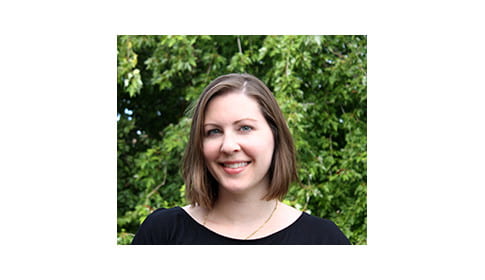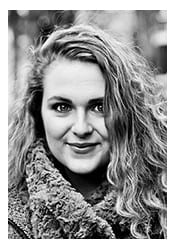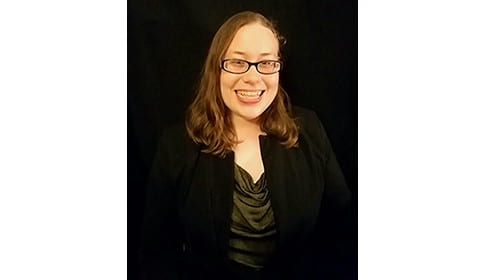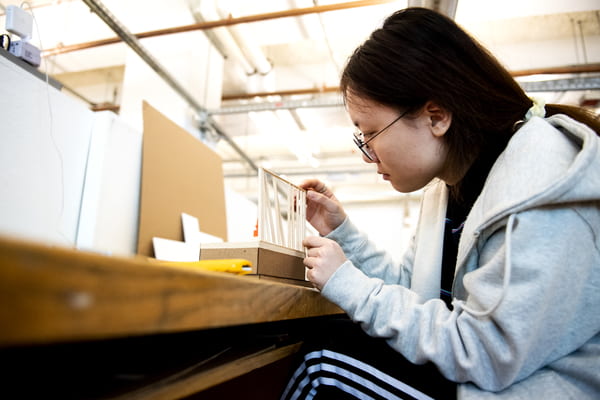2016 Issue
This 2016 issue includes three articles from 3 institutions that explore unique aspects of interpreting.
Funded by the federal Rehabilitation Services Administration (RSA) for six years (2010-2016), the 2016 issue of the JUIS will be last one published by the NIEC. We are very grateful to the financial support provided by RSA over the years. We are also grateful to all who make the JUIS possible including reviewers, editors, technicians, translators and, of course, the authors.
We encourage you read through this year’s outstanding issue and to review previous issues. This scholarship holds promise for the future of interpreter education.

"The Importance of Specialized Certification in Healthcare Interpreting" Abstract
In recent years, stricter standards have been proposed for interpreters in healthcare settings, but evidence for these proposals has yet to be shown through research. This study begins with exploration of the current literature regarding interpreting in healthcare settings to determine if specialization would address issues, problems, and concerns identified in previous research. The author also collected data via pilot surveys among both the d/Deaf community and working ASL-English interpreters, with a total sample size of ten participants, to investigate where current opinions stand on the issue of healthcare specialization. Surveys reflected widespread agreement among d/Deaf participants that healthcare interpreting should require specialized certification, but opinion among working interpreters was more evenly divided. These results provide evidence that current interpreting standards in the medical field fall short of the ideal, and require action from professional organizations to provide better service to d/Deaf and hearing consumers. Before professional organizations establish guidelines, further research should be done to better understand current opinion and interpreter concerns.
I am a second semester junior at Columbia College Chicago, obtaining my second Bachelor’s in ASL-English Interpretation (projected graduation: Spring 2017). Currently, I have my Bachelor’s and Master’s degrees in Counseling Psychology and work in the mental health field assessing psychiatric patients in an urban emergency room setting. My experience in this field has emphasized the complexities of the healthcare setting, however, as an interpreting student I learned that there are no requirements for additional experience, training, or competency to interpret in this setting. Too frequently, I witness d/Deaf patients in the hospital go through their entire medical process without any communication beyond a paper and pen, or family members of Spanish or Chinese speaking patients attempt to explain complicated medical issues to their loved ones. It is this experience that led me to research current standards in healthcare interpreting and the possibility of doing better by our consumers.
Correspondence regarding this article should be sent to Carly Lonergan at carly.lonergan@loop.colum.edu

"How Do Interpretations Alter Perceptions of Speakers and Signers?" Abstract
This pilot study explored how perceptions of speakers and signers are altered when their message undergoes the process of American Sign Language (ASL)/English interpretation. Bucholtz & Hall (2005) examined the role of identity, saying it is an aggregate of perceptions that are influenced by surroundings and social players. An individual’s perceived identity is constantly in flux and can be altered by even the most subtle lexical and syntactic decisions. Furthermore, as explained by Cokely (1981), perceptions of identity do not solely depend on linguistic factors, but can also be altered through extra-linguistic components, namely metanotative qualities. The metanotative qualities of interpreters may remain as artifacts through the interpretation process and impact the perception of the original presenter. Feyne (2015) discussed the implications of this possibility through the lens of Deaf professionals. The current study expanded on Feyne’s approach as it applies to both speakers and signers. By means of an online survey, Deaf participants were provided two video clips in ASL and non-Deaf participants were provided two audio clips in English. For each, participants were asked to indicate their perceptions of a presenter. We found that perceptions of presenters were negatively skewed when presentations underwent the interpretation process versus when they had not been interpreted. Our research revealed that these discrepancies have real-world implications for speakers and signers, particularly in the realm of employment.
Erica Kramer first discovered her interest in American Sign Language in 2003 while completing a B.S. in Film & Television Production at Boston University. Since then, she has grown passionate about the language, the Deaf community, and the field of interpreting. In 2013, Erica uprooted her life to pursue her second B.S., this time in ASL / English Interpreting at Northeastern University. While at Northeastern, she seized every opportunity to be involved and give back to the Deaf and interpreting communities, including (but not limited to) co-coordinating three annual ASL Festivals and Summer Symposiums and serving as Volunteer Co-Coordinator for StreetLeverage-Live 2016. Erica graduated from Northeastern this May and is thrilled to finally join the Massachusetts interpreting community. Currently, she serves on the leadership team for Young Professional Interpreters (YPI): Greater Boston as she works toward her national certification and state screening.
Gillian Gipson is a recent graduate of Northeastern University, having majored in both ASL/English Interpreting and Psychology. Since stumbling upon ASL and Deaf Culture her freshman year, she has found a passion for interpreting and the Deaf Community. She quickly realized that interpreting was the career for her and changed majors and career paths. During her time as an undergraduate, she sought out many volunteer opportunities within organizations such as Northeastern’s ASL Office, NIEC, The Learning Center for the Deaf (TLC), Deaf-Blind Contact Center (DBCC), and StreetLeverage-Live 2015. With graduation behind her, Gillian is currently looking to further her interpreting skills, working towards Massachusetts’ state screening and national certification.
Correspondence regarding this article should be sent to Gillian Gipson at gllngipson@gmail.com or Erica Kramer at ekramer1@gmail.com.

"Rolling with the Punchlines: Humor Analysis for Sign Language Interpreters" Abstract
Deaf and Hearing cultures perceive humor differently due to linguistic and cultural differences. Interpreters must work with the English language and sign language to reproduce a joke so that it is culturally appropriate and understandable. Along with language, interpreters must recognize the distinctive characteristics of both cultures’ categories of humor. The author begins by defining each category of humor. Then the manner in which both cultures produce their humor is described. Next, the different aspects of humor, such as vocal and visual cues, laughter, timing, function, and benefit are examined. Finally, the author explores the importance of interpreters learning the differences between the two cultures’ humor and how this knowledge can be beneficial.
Melanie Best is majoring in Sign Language Interpretation at Augustana University in Sioux Falls, South Dakota. She plans to graduate with her Bachelor’s degree in May 2017. While studying at Augustana, Melanie has been involved with and served on a student-run organization called Deaf Awareness. She has served on Deaf Awareness as the board’s secretary for one semester and treasurer for two semesters. Melanie volunteers and participates in numerous events sponsored by Augustana interpreting program and the Sioux Falls Deaf Community. One event she had the honor of attending was the 2015 ASL Immersion Program hosted by the Northeastern University American Sign Language Program in Boston, Massachusetts. Melanie wrote this paper for her Interpretation 1 (INTR 340), class taught by Professor Marlee Dyce.
Correspondence regarding this article should be sent to Melanie Best at Mabest13@ole.augie.edu.edu
Acknowledgements
We are grateful to those who assisted with this 2016 issue of the JUIS including: Mark Halley, Dani Hunt, Annie Marks, Stephen Fitzmaurice, Brenda Nicodemus, Darrell Penta, Laurie Shaffer, Amy Williamson, Damon Timm, and Ryan Shephard.
